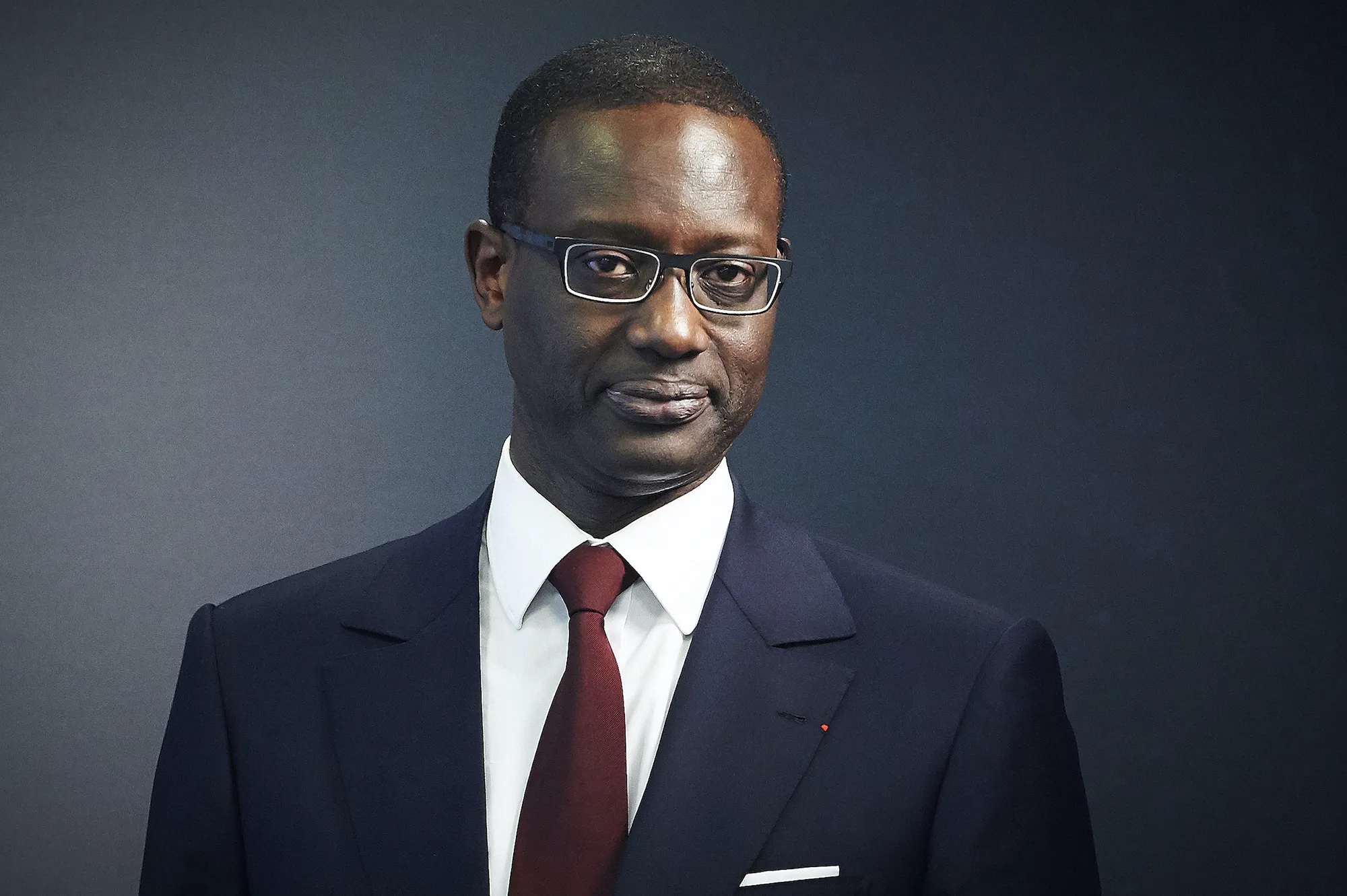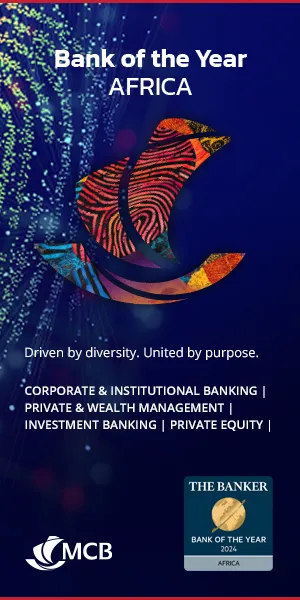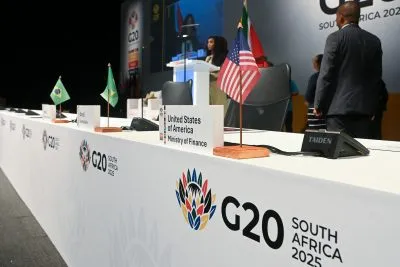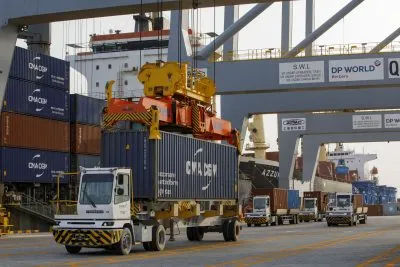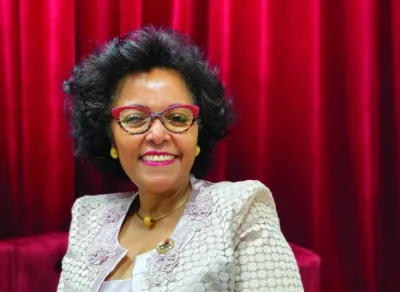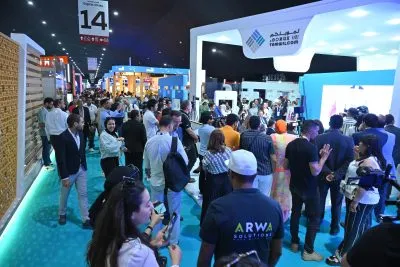Tidjane Thiam made international headlines when he was appointed chief executive officer of Britain’s banking and insurance giant Prudential in 2009, making him the first black chief executive of a FTSE 100 listed company. He was the first black person to be appointed to such a high profile position in corporate Britain.
He made even bigger headlines when he was head-hunted to run the Swiss banking and financial services behemoth Credit Suisse in 2015.
He led a root and branch restructuring process that saw the company’s expansion in wealth management. Between 2016 and 19, under Thiam, the company generated new assets of €113.7bn, and pre-tax profits grew at 15% for four years in a row, from €2.5bn in 2015 to €4.4bn in 2019. However, in 2019, following a dispute with a former employee, he resigned from the company.
Since then he has been in high demand to head various organisations and in 2019, became a member of the International Olympic Committee. He is currently the executive chairman of global investment company Freedom Acquisition.
African Business: What are you doing at the moment?
Tidjane Thiam: I am now entering the second half of a career that began in 1986. After 36 years spent in both the public and private sectors, I am now in a moment of pause and reflection. That said, I have also had to make commitments since this period has coincided with the Covid-19 crisis, in which I have been playing an active role.
Today, I have a portfolio of activities that all fascinate me. I have commercial activities with my company Freedom Acquisition Corporation, where I raised $345m; I’m on the board of directors of Kering which owns luxury brands such as Gucci, Yves-Saint-Laurent, Boucheron and Balenciaga – I chair the audit committee.
More generally, I also take on the role of mentor since some entrepreneurs are sometimes kind enough to ask me for advice and I am always very happy to discuss ideas with them. I also have a number of activities more in the nature of public service missions.
Thus, I am consulted on various issues by Heads of State and governments. For example, I help President Kagame and Rwanda with their vision to make Kigali an international financial centre.
I belong to a number of think-tanks – like the Council on Foreign Relations in Washington. I also carry out more specific missions such as my participation, in 2020, at the request of David Malpass, head of the World Bank, on the committee which appointed Makhtar Diop as director general of the IFC.
Sport is one of my passions and I have the great pleasure and honour of having been elected a member of the International Olympic Committee (IOC). In short, I am not unemployed!
What have you learned about decision-making over your career?
One of the things that this experience teaches you is the permanence and importance of the human factor in everything that we do.
I had basic scientific training but I must admit that I have evolved a lot from the convictions I had at the start of my career. I believed then, like many people who have this type of training, in equations. Since then, my faith in equations has diminished and my awareness of the importance of the human factor in everything we do has grown.
Ultimately, we can only act through men and women, their convictions, their motivation – their hearts and minds. Unfortunately, in classic Cartesian-type training, we are taught above all to speak to the mind – to the brain – and not at all to the heart, to the guts. In the end, people only act and are moved by emotions, by the heart.
I love this well-known and almost overused anecdote of John Fitzgerald Kennedy visiting NASA when it was planning the mission to the moon. Meeting a sweeper, he stops and asks him: “And you, what are you doing?” The street sweeper replies: “Mr. President, I am helping to put a man on the moon!”
That sense of mission and vision is what is really, really important – human beings are ultimately only motivated by such things. That’s what I learnt.
What can be done to lead Africa towards a future of prosperity?
To make the link with the importance of the human factor, the answer belongs and can only belong to Africans themselves.
The challenges are many and real. What we Africans have in the face of these challenges is our intelligence, our capacities, our emotions, our determination and our convictions. This is what we realistically have to work with.
Natural resources are good, but they are only worth anything if we are able, first, to extract them and, second, to manage them well. It always comes back to the human element and human capital. So you have to manage to combine three things.
The first is private initiative. For me, to trust someone is to trust the human race. Human beings, faced with a situation of pressure, are endowed by nature with the ability to rise, to be creative, to act. Rather than preaching, we must trust African men and women. In a nutshell, let the private sector, private enterprise, develop.
The second, closely linked to the first – and which is at the heart of everything – is to invest in this human capital. Which brings us to the issue of health and education. The two elements feed and reinforce each other.
For the third element, creating a favourable environment, it is important to make a distinction between the “hard” and “soft” as in the computer hardware and the software. They must both be adequate.
The “hard” infrastructure is what we talk about every day and what I was doing in Côte d’Ivoire – roads, wells, bridges, airports, container terminals, thermal power stations, hydroelectric dams, solar panels… infrastructure in the broad sense.
However, the “soft” is actually what matters most. I include things such as respect for human rights and fundamental freedoms, the rule of law, the absence of corruption, the refusal of violence, etc.
These elements, when present, provide a favourable framework for private enterprise. If I had to sum up my thinking in one word, it is about culture. It’s the culture, what’s in people’s minds, that guides their behaviour and ultimately it’s the behaviours that matter more than roads and bridges.
We talked a lot at the beginning of the 21st century about “soft power”, which can be translated as influence, others seeking to imitate you and inspired by your example.
All countries are engaged in a race for soft power. They realise, more and more, that this is the real power. Take, for example, what the US has done in Silicon Valley and through Facebook, Instagram, Netflix. They have changed the way we all live.
The creation and then the success of Netflix has a direct impact on hundreds of millions of lives. That is real influence. And we see that soft power today can slow down or even stop the advance of army divisions and tanks…
We are moving towards a world where it is the intangibles that have the most value. If you look at the balance sheets of companies today, it is no longer their factories, their properties and the equipment that make up the bulk of their worth. What matters more and more is what is called goodwill, i.e. the value of intangible assets of companies such as brands or intellectual property.
Can Africa prepare for this game-changing revolution?
Yes, Africa has no choice! We have to participate, otherwise we will be progressively marginalised. You can rarely win the war with the techniques and technologies of the previous war.
We must be aware that we are all engaged – all countries on all continents – in a battle for innovation, for intellectual capital and for intangibles. This is what determines the value of an Apple or a Google. The latter has very few physical assets but is worth nearly $3 trillion thanks to the intelligence of employees that the group has been able to hire and motivate.
All of this may seem far removed from our African concerns. But I was recently talking to an entrepreneur I know in Silicon Valley and was surprised to learn that he has already made seven significant investments in Africa and the Middle East. It is in developing pharmacies to distribute medicines to 400,000 registered patients in Ghana, and is also investing in South Africa, Kenya, Egypt, Nigeria, Saudi Arabia and Dubai.
Technology should be seen as a lever that can allow us to win. Nations have long led efforts to foster African integration; at the same time, major progress is actually being made by the private sector motivated by profit and economic success.
I know seven or eight companies that are each already established in about 15 African countries and enable money to be sent from one country to another in Africa in complete safety. This is economic integration achieved by people who have been well trained, many in Africa.
Africa is thus beginning to reap the dividends of the investment it has made in its human resources across the continent and in the diaspora. These women and men are putting everything they have learned at the service of the African economy. This is how we will win.
Are you satisfied at the rate things are progressing in Africa?
I remain eternally dissatisfied, not only about Africa. Dissatisfaction is one of the most powerful engines of evolution.
On the contrary, we must go faster than the others. If we are less advanced than the others, it is not by working less that we will manage to catch up with them and even less to exceed them!
That said, you need a healthy appreciation of things and know how to motivate without discouraging. Dissatisfied but not disillusioned. We’ve made progress, but the road ahead is still long. There is no room for complacency but we must also know how to appreciate – given the challenges faced by our forefathers – the path that they opened to have enabled Africa to travel, to study, to progress. This means we have the foundations to succeed but we need to move faster.
How should African debt be treated today?
In the long run, the only real solution to debt is growth and that will come from the things I just told you about. To look at the debt is often to look at the symptom rather than the cause.
Debt is not bad in itself if you have enough growth and can pay it down. All the states that have taken off economically have gotten into debt at some point because they needed more capital than their own savings capacity could provide.
The obsession must be economic growth. In this context, it is essential to better mobilise the domestic resources of African economies. The development of local financial institutions and in particular, pension funds – given the youthful demography of the population on the continent – is essential to finance and stimulate investment.
Economic growth is an imperative that is all the more important for Africa as population growth is very high although it is a little less now from when we had 3.8% population growth in Côte d’Ivoire when economic growth was less than 4%. This additional pressure in Africa is real but, as China has shown, it is possible to have explosive growth for a long time.
How do you see the situation after two years of Covid and a year that has begun with the Russia-Ukraine war?
I talked about intellectual capital. What got us out of the Covid crisis? The doctor who created BioNTech is the son of Turkish immigrants in Germany. The answer to this problem came out of a man’s brain.
If there is one thing that the health crisis has vividly illustrated, it is the importance of intellectual capital and knowledge. We were all distraught, shutting ourselves up and hiding. This man, Uğur Şahin, and his wife, Özlem Türeci, liberated us.
Ask yourself, whenever a child does not go to school, where we would be if Mr. Uğur Şahin had not gone to school? Every time a child is out of school, you have to ask yourself this question. We may be cutting off an arm from humanity.
This is why this question of investing in men, women and children is at the heart of everything. Whether it’s Covid or Ukraine, at the end of the day, the solution is all about men and women.
There is a pressing appeal to this civilisation of humanism. But as we can see, today there is a war that is devastating a country. There will always be tensions, fault lines.
What I am saying is it is important to always have in mind the long term. We have a natural propensity, nature made us this way, to do the opposite, to put short term [interests and needs] ahead of the long term.
This transition will only happen with a greater consciousness and deliberate actions. It’s in everyone’s interest to raise children even if it means that every dollar put into a child’s education doesn’t go to consumer spending, buying a TV or buying a steak. There are often sacrifices to be made to enable you to invest for the long term.
Want to continue reading? Subscribe today.
You've read all your free articles for this month! Subscribe now to enjoy full access to our content.
Digital Monthly
£8.00 / month
Receive full unlimited access to our articles, opinions, podcasts and more.
Digital Yearly
£70.00 / year
Our best value offer - save £26 and gain access to all of our digital content for an entire year!

 Sign in with Google
Sign in with Google 